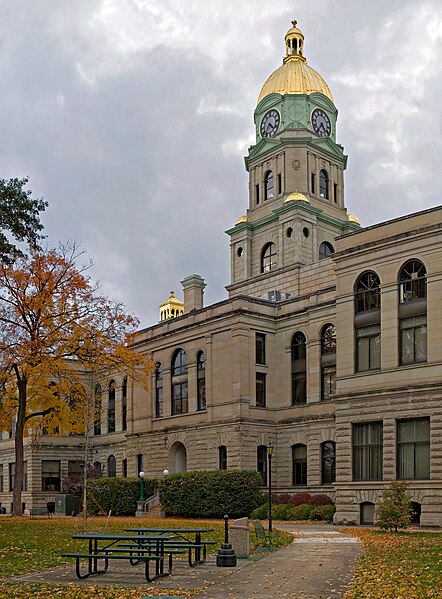Court asks West Virginia Supreme Court to decide whether opioid distributors caused public nuisance
BY: LORI KERSEY
Claims the City of Huntington and the Cabell County Commission are bringing against three opioid distributors are still alive under a ruling by the Fourth Circuit Court of Appeals on Monday.
In an order, the Fourth Circuit Court of Appeals asked the West Virginia State Supreme Court to decide whether state law recognizes conditions caused by prescription drug sales to be a public nuisance, and if so, what are the elements of such a public nuisance claim?
“Moreover, in our view, the fact that there is no controlling appellate decision, constitutional provision, or statute of West Virginia answering this question renders it appropriate for Certification. See W.Va. Code § 51–1A–3,” Senior Circuit Judge Barbara Milano Keenan wrote in the order. “We acknowledge that the Supreme Court of Appeals of West Virginia may restate this question. See id. §§ 51-1A-4, 51-1A-6(a)(3).”
A “no” decision from the state Supreme Court would end the lawsuit the plaintiffs brought in 2017 against three opioid distributors: AmerisourceBergen Drug Corporation, Cardinal Health, Inc., and McKesson Corporation. If the state Supreme Court says that opioid distribution can constitute a public nuisance, the case would go back to the Fourth Circuit for further review.
In the 2017 lawsuit, plaintiffs argued the companies “created, perpetuated, and maintained” the opioid epidemic by repeatedly shipping to pharmacies orders of opioids in quantities that the distributors “knew or should have known exceed[ed] any legitimate market” for the drugs and that the conduct resulted in a public nuisance that was subject to abatement under state law, according to the order.
U.S. District Court Judge David Faber ruled in 2022 against the plaintiffs, deciding that West Virginia’s common law of public nuisance did not cover their claim and rejecting the 15-year abatement plan to address the opioid crisis in Cabell County.
In Monday’s ruling, the Fourth Circuit Court acknowledged that Huntington and Cabell County are “among the West Virginia communities hardest hit by the opioid epidemic.”
“As reflected in the order, the Court took note of our arguments that, as in many other states, West Virginia trial courts have repeatedly allowed government entities to bring public nuisance claims concerning opioids and, if proven, can be recognizable claims against distributors of opioids,” Huntington Mayor Steve Williams wrote in a statement Monday afternoon. “We remain hopeful that the Court will find under West Virginia law, the City of Huntington and Cabell County had the right to file its claim that distributors of opioids can be held accountable for flooding the market with opioids and the resulting devastation of the opioid epidemic.”
Reached Monday afternoon, Anthony Majestro, an attorney for the Cabell County Commission, said he was “pleased with the thoughtful opinion by the Fourth Circuit.
“The court recognized the conflict between Judge Faber’s decision refusing to recognize our public nuisance claim in federal court and the consistent opinions to the contrary by three different West Virginia state court judges,” Majestro said. “We look forward to the opportunity to explain to the West Virginia Supreme Court why the West Virginia state court judges got it right.”

